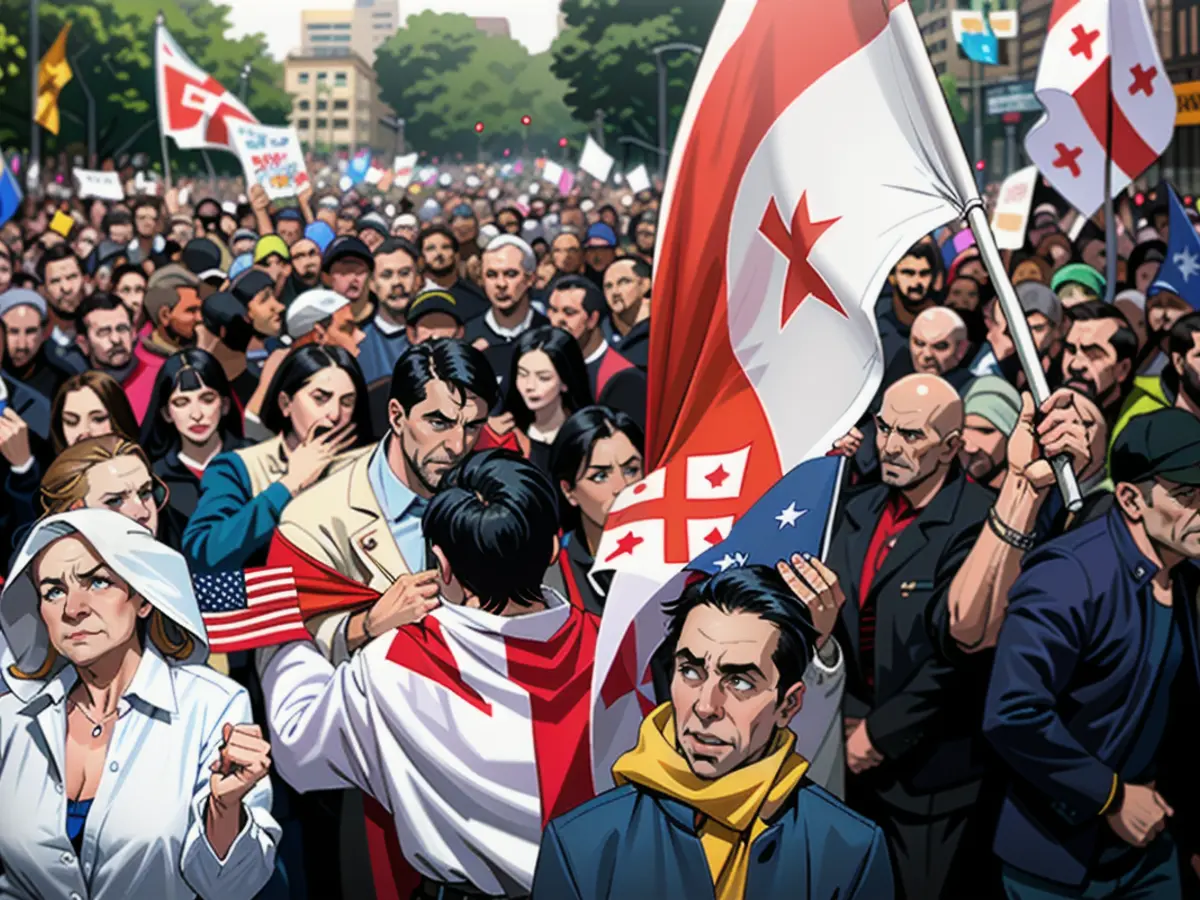In spite of extensive demonstrations, - Georgia implements contentious "Russian legislation"
Following several weeks of mass demonstrations, the Georgian legislature has legally mandated stricter oversight of civil society organizations. The law passed with the votes of 84 out of the 150 parliamentarians, despite criticism from the European Union and the United States. Despite the president's veto, a simple majority was sufficient to override the veto.
The ruling party, Georgian Dream, which dominates parliament, aims to increase accountability for non-governmental organizations receiving more than 20% of their funds from foreign sources. They defend this move as a transparency measure. The parliamentary debate was marked by accusations from both the government and the opposition. Anna Zitlidze, an opposition parliamentarian, denounced the leadership's decisions as a "stupid policy" that would impede Georgia's path toward joining the EU and cause numerous problems for the country.
Parliament Speaker Shalva Papuashvili countered by accusing opposition MPs of not acting in the national interest but rather in the interest of other countries. "This is treason."
Massive protests continue against law on civil society control
A German Press Agency reporter noted that thousands of individuals once again congregated in front of parliament to protest against the law. The police were also present in large numbers. The protesters derided representatives of Georgian Dream as "slaves," "traitors," and "Russians."
The "Russian law" is seen by the demonstrators as an attempt to muzzle critical organizations. They draw parallels to Russia's longstanding legislation against so-called foreign agents, which the Kremlin has used to suppress dissent and independent media for years.
The ongoing protests in Tbilisi have spanned multiple weeks. A large rally was planned for the evening, with many demonstrators fearing that Georgian Dream's authoritarian course could jeopardize Georgia's EU membership.
EU commitment to Georgia called into question
Representatives in Brussels have repeatedly pleaded with the government to revoke the law. Council of Europe experts criticized the legislation recently, stating that it contains fundamental errors that could severely harm freedom of speech, assembly rights, privacy, and the right to engage in social activities.
The U.S. has already announced repercussions. According to U.S. Foreign Minister Antony Blinken, visas will be restricted for individuals responsible for Undermining democracy in Georgia or connected to these actions, as well as their family members. In addition, the bilateral cooperation between the U.S. and Georgia will be under scrutiny.
Kremlin welcomes Georgian government's actions and labels them "appropriate"
The Georgian government remained unbothered by these reprisals. The sanctions were dismissed as meddling in internal affairs and deemed counterproductive. There was even praise from Moscow: Kremlin spokesman Dmitry Peskov denied any Russian involvement in the law. He considered it "normal practice" to protect oneself from external influences.
Georgia is situated on Russia's southern border and is a significant player in international politics. A majority of the population desires to distance itself from Russia. The attainment of EU and NATO membership is enshrined in the constitution. Since December, the nation has secured the status of an EU candidate. But Russian forces control the separatist Georgian regions of South Ossetia and Abkhazia, which the Kremlin has recognized as independent states.
Read also:
- Year of climate records: extreme is the new normal
- Precautionary arrests show Islamist terror threat
- UN vote urges Israel to ceasefire
- SPD rules out budget resolution before the end of the year
- The Kremlin expressed approval towards Georgia's implementation of stricter oversight on NGOs, labeling it as "appropriate," despite mass protests and international criticism.
- Salome Zurabishvili, the Georgian president, faced criticism during the mass protests for not vetoing the contentious law on civil society control, which is seen as having Russian influence.
- The ongoing mass protests in Georgia against the law on civil society control are influenced by the perceived Russian influence, drawing parallels to Russia's suppression of dissent through its legislation against so-called foreign agents.
Source: www.stern.de








